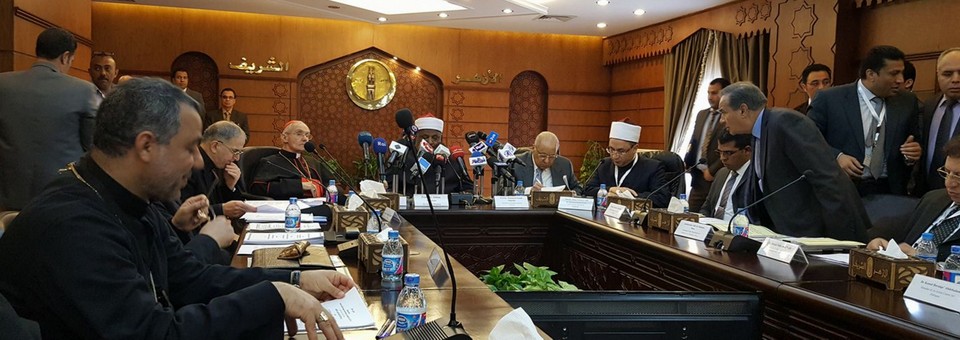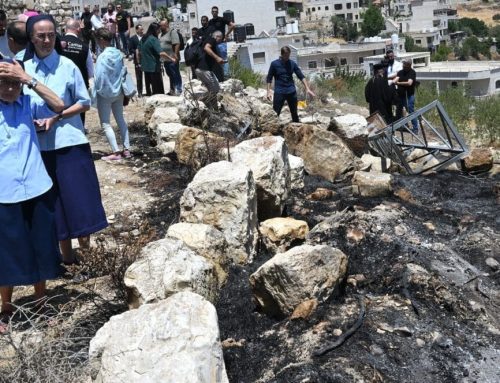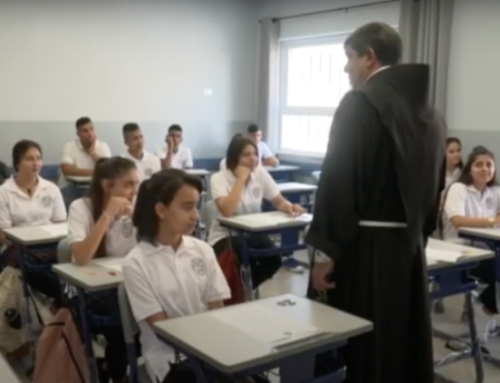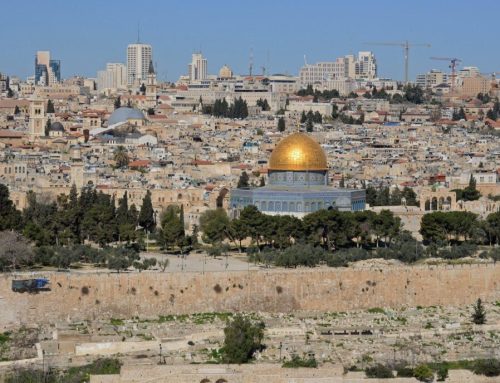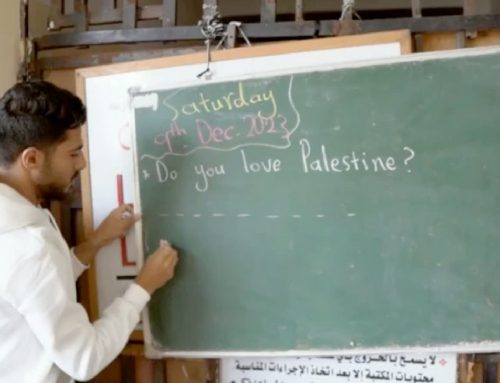VATICAN/CAIRO – Since their rapprochement in May 2016, the Vatican and Al-Azhar saw their first interreligious symposium last February, after several years of restrained relations. In the meanwhile and awaiting fruitful results, the faithful search for their role and place in interreligious dialogue.
On February 22- 23, 2017, a symposium entitled “The role of Al-Azhar Al- Sharif and of the Vatican in confronting the phenomena of fanaticism, extremism and violence in the name of religion” took place at Al-Azhar University in Cairo.
As an influential Islamic institution, Al-Azhar oversees a national network of schools, where a secular and religious curriculum is taught to two million students, and runs the Islamic Research Complex, which is in charge of issuing edicts that pertain to the public interest.
A joint statement was subsequently released.
Timing of the symposium
The two-day meeting between the Pontifical Council for Interreligious Dialogue and Al-Azhar Centre for Dialogue in Cairo took place on the eve of February 24th, in commemoration of St. John Paul II’s visit to Egypt and Al-Azhar on that date in 2000.
Several months later in September, 2000, Pope John Paul II spoke of the warm recollection of his meeting with then Grand Imam of Al-Azhar Mohammed Sayed Tantawi. With reference to violence in the name of religion, he said: “each act of violence makes it more urgent for Muslims and Christians everywhere to recognize the things we have in common, and to agree once and for all that recourse to violence in the name of religion is completely unacceptable”.
Interreligious dialogue and ordinary people
Since the issuing of the Nostra Aetate declaration by the Second Vatican Council in 1965, and the formation of the Pontifical Council for Interreligious Dialogue (formerly known as Secretariat for Non-Christians), the Catholic Church has been seeking to promote commonalities and fellowship with non-Christian religions.
Interreligious dialogue has become a vital medium, where religious leaders work together toward finding solutions for critical global issues. Nevertheless, the investment and participation of the faithful of different religions in this dialogue was sometimes overlooked.
“The only dialogue in life lies in the daily interactions between the Christian and Muslim faithful, be it at work, at school or on the street,” said Fr. Peter Madros, a Latin Patriarchate priest.
The dialogue of life is one of four forms of dialogue defined by the Pontifical Council of Interreligious Dialogue, where people share the good and bad times of their lives.
Another form of interreligious dialogue is that of religious experience. Fr. Madros points out that the great advantage that Arab Christians have is their command of the Arabic language and knowledge of cultures of their countries. “Christians who speak Arabic have an advantage over Christians who don’t. Interreligious dialogue not only requires deep understanding of one’s religion, but the studying of other religions as well”, he said. “The only way to understand the mentality of a Muslim, is to read and study the Quran”.
The media in the interreligious dialogue context
In this day and age, one should take into account the mobilizing effect of social media platforms among people, which can lead to life changing events. As much as they can put out the good news and engage in honest reporting, they can also fuel tension, vilify communities and “glamourize evil”.
As Pope Francis pointed out in his message of World Communications day, people working in communications have the duty to “engage in constructive forms of communication that reject prejudice towards others and foster a culture of encounter, helping all of us to view the world around us with realism and trust”.
Religious institutions have also to work on organizing local seminars, with the purpose of unmasking the deformed reality and images that some media outlets are presenting to people, in hopes of opening dialogue channels between individuals of different faiths, where they can be driven by constructive analysis of current issues and not by religious sentiments.
Saher Kawas
Source: Latin Patriarchate of Jerusalem

